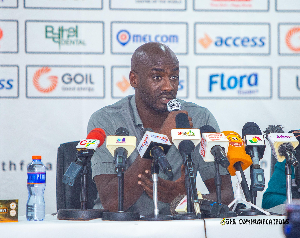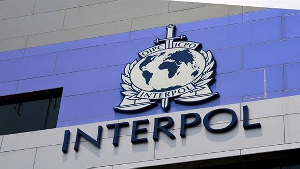ADDRESS BY HIS EXCELLENCY FLT-LT. J. J. RAWLINGS PRESIDENT OF THE REPUBLIC OF GHANA
AT THE MILLENNIUM SUMMIT OF THE UNITED NATIONS NEWYORK, SEPTEMBER 7, 2000
Mr. President,
The end of one millennium and the beginning of another marks a focal point for the hopes and expectations of peoples across the world.
While there were great social and scientific achievements during the past century, deprivation and inequality continue to grow.
The report of the Secretary-General to this Summit captures the challenges and the means to address them very comprehensively. We support the thrust of the report, and we call for international commitment to urgent action.
In today's globalized world, we must not only ensure social justice internally; we must also incorporate it in our global interactions. The failure in the past to recognize and apply the principles of equity and justice in international relations has determined the present unacceptable conditions of poverty, marginalization, criminality, disease-spread, environmental degradation and global social disorder.
Using the economic and technological edge of our millennium and converging ethical world-views, we can reverse these conditions and pursue the objectives of socially stable global societies, emphasizing trade, debt reduction or debt alleviation and the containment of the HIV/AIDS pandemic.
Mr. President,
Education, particularly access to good quality basic education, provides the basis for the building of tolerant, socially stable communities.
We must therefore mobilize the $7 billion a year needed to meet the educational costs of providing primary education over the next 10 years for the 130 million children in developing countries who do not now have access to it.
Our efforts to strengthen education must necessarily include the education and empowerment of women, with emphasis on the girl child.
Mr. President,
As a leading contributor to UN and regional peacekeeping initiatives, Ghana believes that regional or sub-regional efforts to contain conflict can only augment the UN's efforts to maintain international peace and security. This is best assured if structural weaknesses in LIN peacekeeping operations are addressed.
Mr. President,
If developing countries are to assure their peoples the decent quality of life which flows from a stable developed environment, their capacity to govern responsibly needs to be reinforced, particularly, through increased development assistance. The absence of strong and resilient institutions in regions like Africa has encouraged corruption from within and without.
Corruption is a global phenomenon. However, Africa in particular, has suffered especially severe damage, materially, morally and seemingly, as the only or the most corrupt continent in the world.
Admittedly, Africa may have had some notably corrupt leaders and governments. It may also be true that our continent is not yet free from this blight, which has drained some of our countries of resources which should have been used to improve the quality of life of the poor and disadvantaged.
Developing countries have to check corruption, but we are also entitled to demand that the developed world does not thrust corruption upon us.
Mr. President,
Let us ask ourselves: where do the proceeds of this corruption end up? I have previously answered this question in the vaults of the financial and banking institutions of the western world. For every dollar of corrupt money that is kept in western banks, one African child dies, two African children starve and three African children suffer from disease and ignorance resulting from lack of health care and education. There will be less corruption in Africa if there is no place to hide the. proceeds of corruption or if the proceeds of corruption, once uncovered, care returned to their real owners, the people of Africa.
Apparently reputable companies and multinationals are known to engage in underhand deals with high officials in order to gain advantages against their competitors or to carry out unethical operations.
Recently one western company so seriously undermined a rival company from the same country in a bid for an important water project in Ghana by falsely impugning its business ethics that the later company, which had offered much better terms, pulled out of the bid. Their withdrawal from the bidding is Ghana's loss as the water project still remains on the drawing board.
In another case of competition between western countries on the two sides of the Atlantic ocean, questionable arguments based on technical rules of origin, and supported by false declarations of officials sent down to Ghana, were employed in order to deny European market access to a Ghanaian value-added product, a sad extension of the western countries' own trade wars.
A World Bank report recently blacklisted 29 companies for corruption in contract-awarding procedures in an African country, the overwhelming majority of which were from developed countries, mostly the western world. That was bad enough. But even worse is the corruption of the domestic front men of such companies whose corrupt monies continue to be retained in western banking and financial institutions and about whom there is a stony silence. Yet for every one politician whose alleged corrupt money is uncovered, there could be five corrupt African collaborators whose corrupt monies remain untouched in western banks.
Only last week, in an unprecedented diplomatic faux pas, a high-ranking western diplomat in my country openly declared at a public forum that leading western Companies, including those from his own country, offer bribes to Government officials in order to influence the award of contracts. In other words, western governments know about the corruption of their countries' companies operating in Africa, and yet keep quiet about it. This is not good enough.
Questionable and dubious mergers and acquisitions are throwing out of business, enterprises in Africa and the developing world and even in the developed world itself.
I am convinced that Africa's political independence will continue to remain meaningless, unless it is reflected in a transparent Africa, a corruption-free Africa, an accountable Africa, and a trusted Africa. But the temptations of the developed world must stop, if this vision is to be achieved.
Mr. President,
The ongoing reform of our organization must aim at achieving a world body that is development-oriented and representative, and a Security Council which is more democratic and responsive.
Making and using the United Nations as a real forum of the people, responsive to the global challenges of our time, will be our challenge as we embark on a new millennium.
I thank you.
General News of Friday, 8 September 2000
Source: Ghana Mission
















